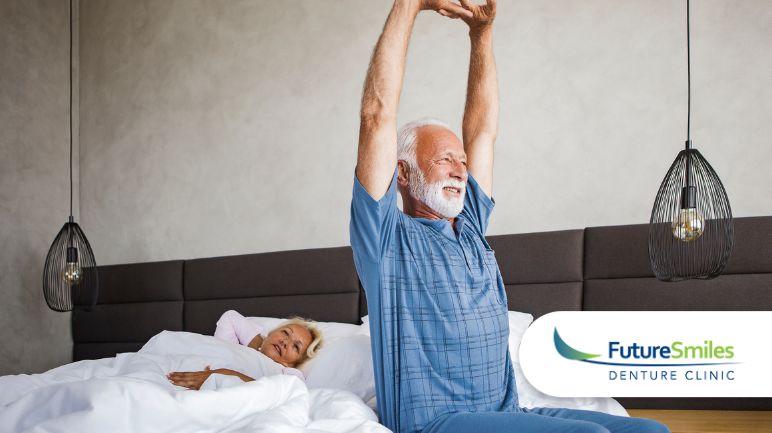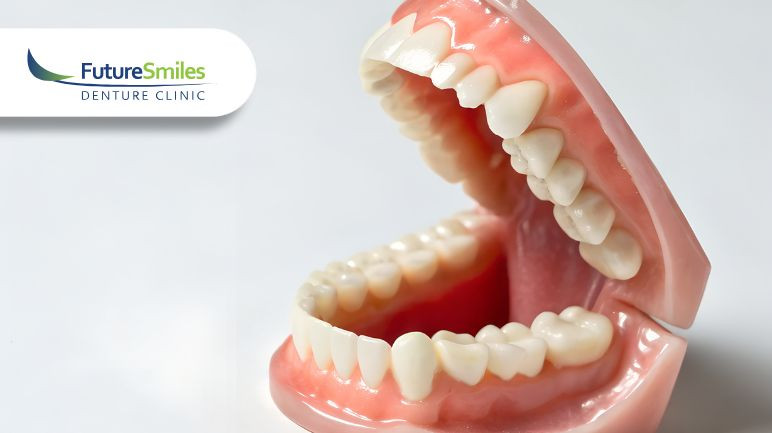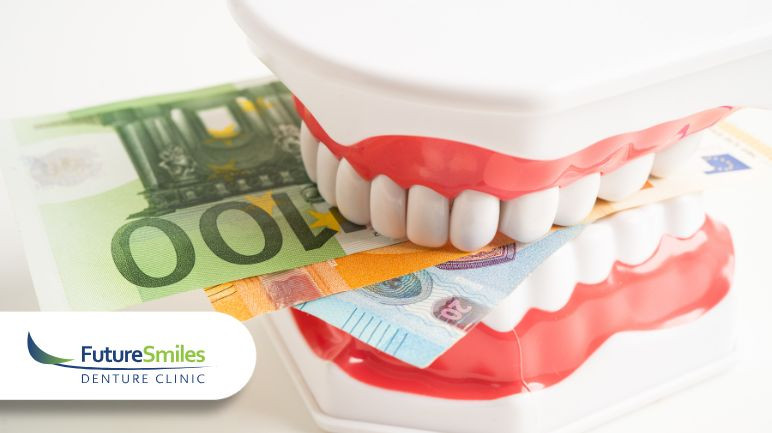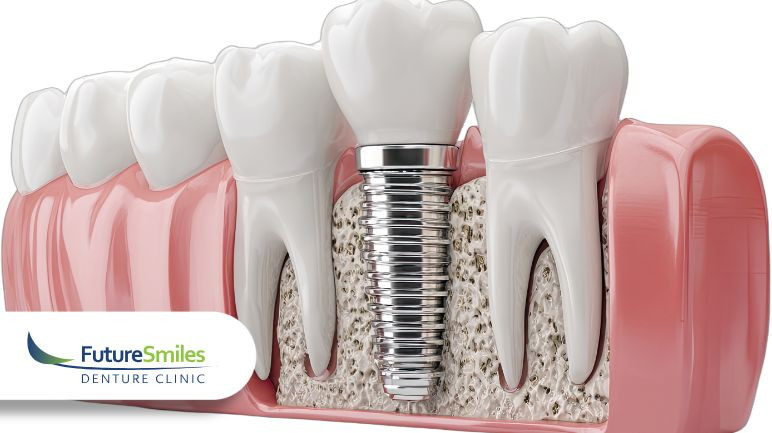Sleeping With Your Complete Dentures: Okay Or No Way?
The Case For “No Way”
Sleeping with complete dentures is a topic that generates curiosity among denture wearers. Some individuals may find it convenient or comforting to keep their dentures in overnight, while others may be concerned about the potential implications. Let's delve into the subject and explore the various factors to consider before deciding to sleep with your complete dentures.
First and foremost, it is essential to understand that wearing complete dentures during sleep is generally not recommended by dental professionals. Dentures are designed to be removable, allowing the gums and jawbone to rest and recover from the pressure exerted during the day. Removing your dentures at night gives your oral tissues a chance to breathe and prevents potential issues such as irritation, soreness, and infection.
And wearing dentures 24/7 can increase the risk of fungal infections, commonly known as denture stomatitis. These infections occur due to the accumulation of microorganisms on the denture surface, which can thrive in warm and moist environments. Removing your dentures and thoroughly cleaning them before bedtime helps maintain good oral hygiene and minimizes the chance of developing such infections.
Sleeping without dentures can be beneficial for your jawbone health. When you wear dentures continuously, it can lead to bone resorption, which is the gradual loss of bone density in the jaw. Allowing your jaw to rest during the night helps prevent further bone loss and ensures the stability of your dentures over the long term.
The Case For “Okay”
However, there may be situations where sleeping with your complete dentures may be necessary or preferred. For instance, individuals with severe sleep apnea or those who experience nighttime grinding or clenching may be advised to keep their dentures in. In these cases, it is crucial to consult with your denturist for personalized advice and recommendations based on your specific needs.
If you do decide to sleep with your complete dentures, there are certain precautions to take.
- Ensure that your dentures fit properly and comfortably. Ill-fitting dentures can cause discomfort, irritation, and potential damage to your oral tissues. Regular visits to your denturist will help ensure that your dentures are well-maintained and adjusted as needed.
- Maintain good oral hygiene. Caring for your complete dentures properly is essential regardless of whether you wear your dentures during sleep. Before going to bed, thoroughly clean your dentures using a denture brush and mild, non-abrasive denture cleaner. Rinse them well to remove any residual cleaning agents that could be harmful if ingested. Also, remember to clean your mouth and gums using a soft toothbrush or gauze pad.
Expert Denture Advice At Future Smiles
While it is generally advised to remove your complete dentures before sleeping, there may be specific cases where sleeping with dentures is necessary or preferred. However, it is crucial to consult your denturist for guidance tailored to your unique circumstances. Maintaining good oral hygiene and ensuring the proper fit and comfort of your dentures are essential for overall oral health and minimizing potential risks associated with sleeping with dentures. By being informed and proactive, you can make the best decision for your oral well-being and enjoy the benefits of wearing complete dentures during the day while giving your mouth a chance to rest at night.
If you want to explore your options for dentures, speak to a Calgary denturist at Future Smiles Denture Clinic. We will discuss your goals for tooth replacement and determine which type of dentures are ideal for your lifestyle and budget so you can get the best dentures for your needs. To speak with the team at Future Smiles Denture Clinic in Calgary, you can visit the SW Calgary Denture clinic on Macleod or the NE Calgary location in Coral Springs. To book a free consultation with our Calgary Denturist, call 1-403-475-0016 or fill out the online contact form.
FAQ
Q: Will wearing dentures during sleep affect the longevity of my dentures?
A: Wearing dentures during sleep can potentially impact the longevity of your dentures. Continuous wear can subject denture materials to constant pressure and friction, leading to accelerated wear and tear. Also, the lack of rest for your oral tissues can contribute to changes in jawbone structure over time, potentially affecting the fit and stability of your dentures. Therefore, it is generally recommended to remove your dentures at night to allow your mouth to rest and maintain the integrity of your dentures for a longer period.
Q: Can sleeping with dentures cause other oral health issues?
A: Sleeping with dentures can increase the risk of developing oral health issues such as fungal infections and inflammation. The warm and moist environment created by wearing dentures overnight can promote the growth of microorganisms on the denture surface and in the mouth, leading to conditions like denture stomatitis. Constant pressure and friction from dentures can cause sore spots and irritation on the gums. Removing your dentures at night, coupled with proper cleaning and oral hygiene practices, can help minimize these potential issues and promote better oral health.
Q: Are there any alternative solutions for sleeping with dentures?
A: If you find it uncomfortable or inconvenient to sleep without your dentures, there are alternative solutions available. One option is to discuss with your denturist the possibility of implant-supported dentures. Denture Implants can provide better stability and retention, allowing you to wear your dentures during sleep more comfortably. Another alternative is considering a separate set of night-time dentures, specifically designed to be worn during sleep. These night-time dentures are typically less bulky and provide better comfort while still offering some of the benefits of wearing dentures at night. Consultation with your denturist will help determine the most suitable solution based on your individual needs and preferences.







